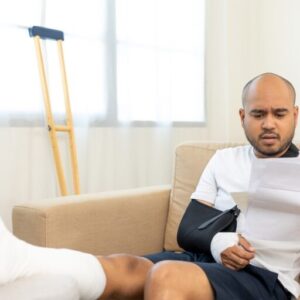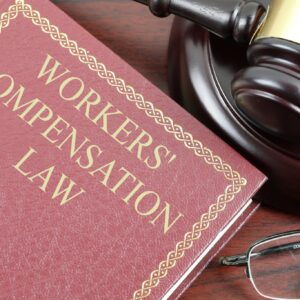A car accident can be a jarring experience. Adrenaline is pumping, you might be disoriented, and figuring out what to do next can feel overwhelming. While calling a lawyer might be on your mind, there are crucial steps you should take first to protect your health and your potential claim.
1. Prioritize Your Safety and Well-being First!
Your immediate safety is paramount. Check yourself and any passengers for injuries. If anyone is hurt, call 911 immediately. Even if you feel okay, internal injuries aren’t always obvious. Don’t try to be a hero. Let the professionals assess the situation.
Move your vehicle to a safe location, like the shoulder of the road, if possible and if it’s safe to do so. Turn on your hazard lights to warn other drivers.
2. Secure the Scene: Information and Evidence After a Car Accident
Once everyone’s safety is addressed, focus on gathering information. If the police haven’t already arrived, call them. A police report is invaluable for your insurance claim.
Here’s what you should collect at the scene:
- Driver Information: Names, addresses, phone numbers, driver’s license numbers, and insurance information for all drivers involved.
- Vehicle Information: Make, model, year, and license plate numbers of all vehicles involved.
- Witness Information: Names, addresses, and phone numbers of any witnesses.
- Photos and Videos: Document everything! Take pictures of vehicle damage, the accident scene, road conditions, and any visible injuries. A picture is worth a thousand words, especially when dealing with insurance companies.
- Police Report Information: Obtain the police report number and the officer’s name and badge number. You’ll need this to get a copy of the report later.
In hit-and-run situations, try to note as much information about the fleeing vehicle as possible (make, model, color, license plate – even partial is helpful). Immediately report the incident to the police.
3. Document Everything: Crucial Records for Your Insurance Claim
Beyond the accident scene, start building a comprehensive record. This includes:
- Medical Records: Keep track of all doctor visits, hospital stays, physical therapy sessions, and any other medical treatment you receive. Document your symptoms and pain levels.
- Lost Wages: If your injuries prevent you from working, document your lost income. Get a letter from your employer verifying your salary and time missed.
- Other Expenses: Keep receipts for any expenses related to the accident, such as medication, transportation to medical appointments, and car repairs.
4. Understand Your Insurance Coverage: What Does Your Policy Cover After a Car Accident Injury?
Review your insurance policy carefully. Understand your coverage limits and what your policy covers, including:
- Liability Coverage: This covers damages you cause to others if you’re at fault.
- Collision Coverage: This covers damage to your vehicle, regardless of who is at fault (subject to your deductible).
- Comprehensive Coverage: This covers damage to your vehicle from events other than collisions, such as theft or vandalism.
- Medical Payments (MedPay): This covers your medical expenses, regardless of who is at fault, up to your policy limit. This can be extremely helpful in the immediate aftermath of an accident.
- Uninsured/Underinsured Motorist (UM/UIM) Coverage: This protects you if you’re hit by a driver who has no insurance or insufficient insurance to cover your damages. This is critically important as many drivers carry only the minimum required insurance, which may not be enough to cover your medical bills and other losses.
Many states have minimum insurance requirements. For example, in California, the minimum liability coverage is $15,000 for injury/death to one person, $30,000 for injury/death to more than one person, and $5,000 for property damage. If the at-fault driver only has this minimum and your injuries are more severe, UIM coverage becomes essential.
5. Seek Medical Attention Immediately: Linking Your Injury to the Car Accident
Even if you feel “fine,” see a doctor as soon as possible. Many injuries, like whiplash or concussions, don’t manifest immediately. A medical professional can diagnose any underlying issues and create a treatment plan. This also creates a crucial link between the accident and your injuries, which is essential for your insurance claim.
Protect Your Rights: Key Things to Do Before Calling a Lawyer
When interacting with the other driver’s insurance adjuster, be polite but cautious. Avoid admitting fault or speculating about the accident. Stick to the facts and don’t downplay your injuries. Be wary of providing a recorded statement before speaking with an attorney. Adjusters are trained to minimize payouts, so be prepared.
When Should You Contact a Lawyer After a Car Accident?
While the steps above are crucial to take on your own immediately after an accident, there are certain situations when contacting a lawyer is essential.
Consider reaching out to an attorney if:
- You’ve suffered serious injuries.
- The insurance company is denying your claim or offering a settlement that doesn’t adequately cover your damages.
- The other driver was uninsured or underinsured.
- There are complex legal issues involved, such as determining fault or dealing with multiple parties.
- The accident resulted in a fatality. In such cases, a wrongful death claim may be pursued.
Documenting the scene, understanding your coverage, and seeking prompt medical attention are vital steps you can take to protect your rights and well-being after a car accident. These preparations will also ensure that when you do speak with an attorney, you’ll be well-prepared to discuss your case effectively.



